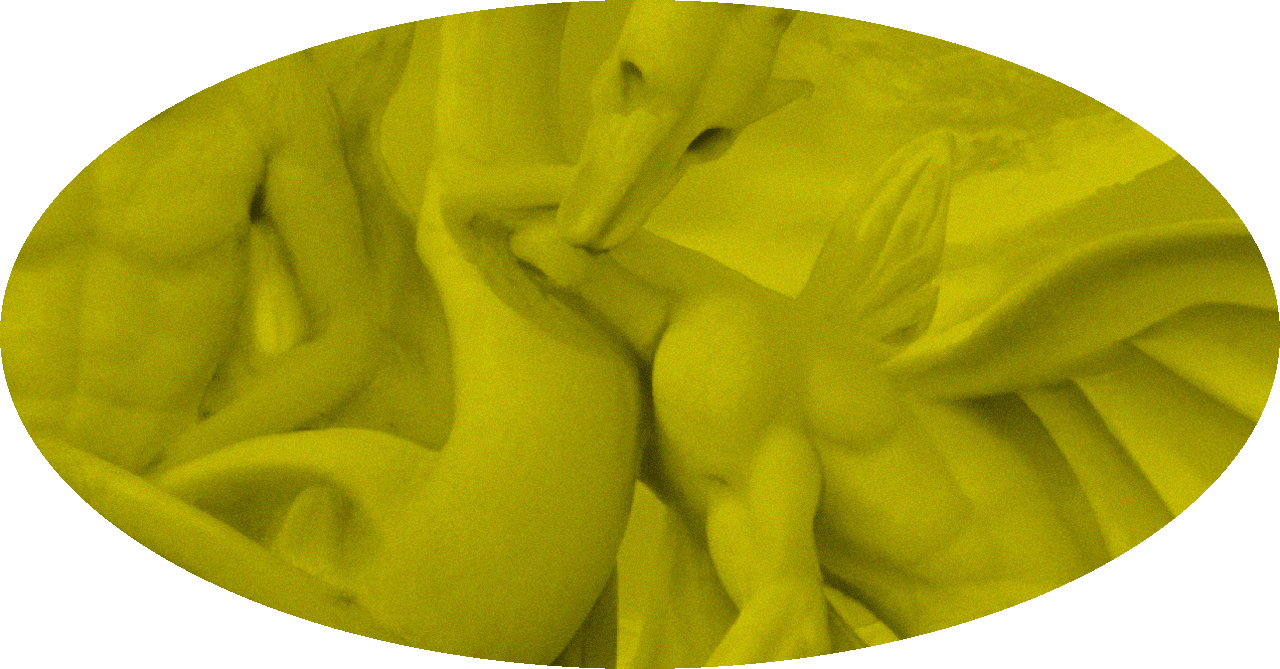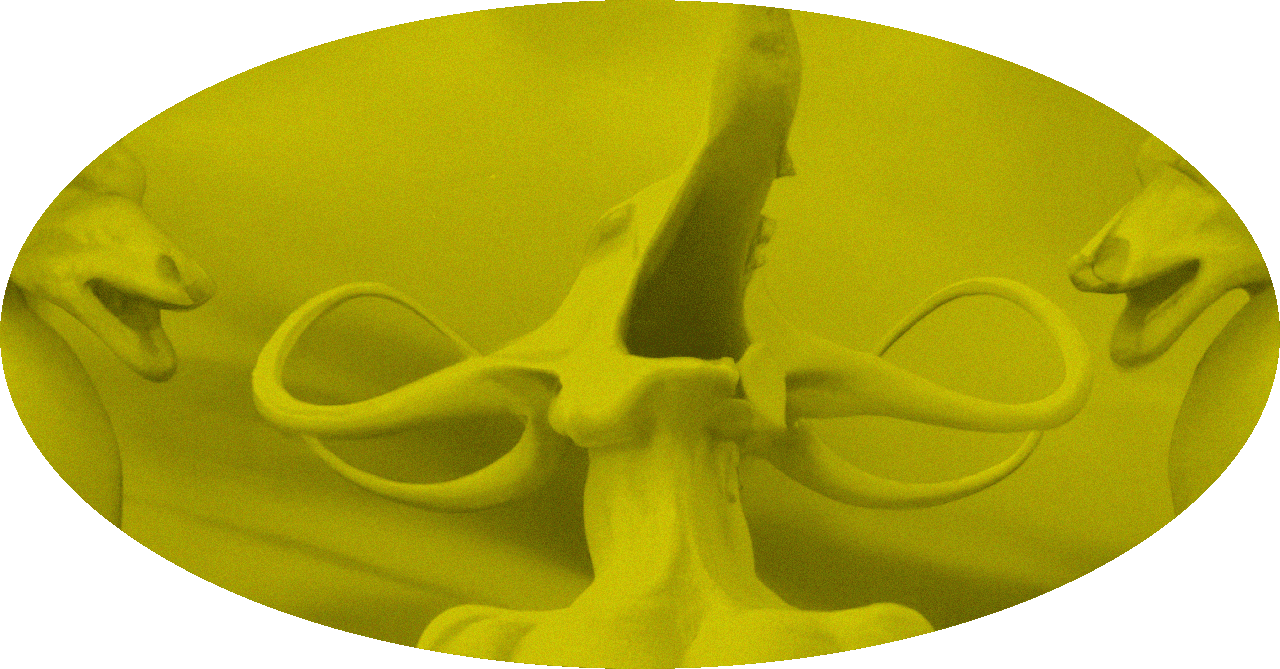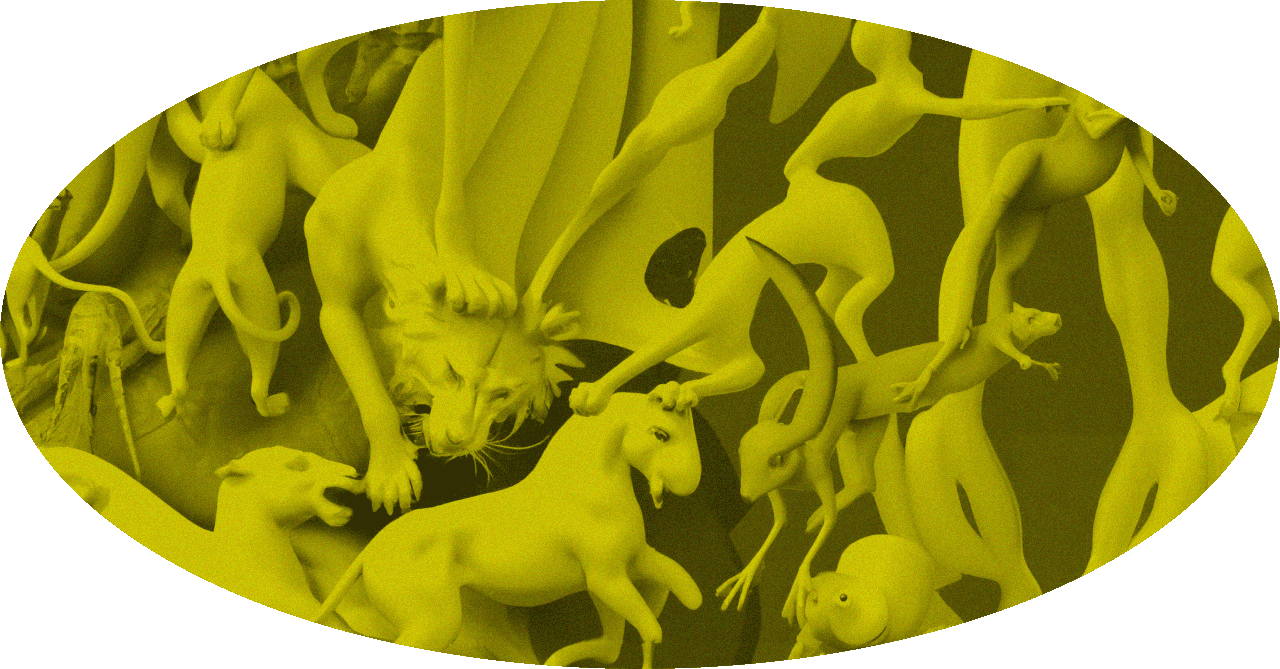


TheLexiconofLorecore
The Lexicon of Lorecore
Curator-in-Residence Shumon Basar introduces us to a new language needed to navigate our era of personal storification.
“Lorecore” is the theme I’m exploring during my season as Curator-in-Residence at ZINE. In the first installment, I introduced this definition:
Lorecore (n.)
An era, belonging to digital capitalism, characterized by people’s existential need to storify themselves at the very moment global narratives collapse in an unprecedented manner.
Lorecore is a neologism. I believe that our new feelings and new realities demand new words. Language makes the invisible palpable. Language also allows us to share abstract emotions with each other, and by doing so, helps us feel less alone with those emotions. If you spend a lot of time online—like me—then the inside of your head often feels strange. Your mind, your soul even, is morphing into something you don’t recognise, and certainly something you don’t entirely understand. What makes this moment in history unlike what has come before? Are things really getting worse? How do I even measure such a thing?
Your internal narration, the voice inside your head, will surely benefit from a new Lexicon of Lorecore. The list of neologisms assembled below is intended as an incomplete toolkit for your own lorecrafting efforts. Each concept can be collected as a special NFT, a shard of meaning to be enlisted in your own narrative universe. These are words to carry with you in your wallet and in the world. Whether you’re in Horny-Sad Hell, or feeling Reality Lagged, I hope you enjoy this new vocabulary. Do it for the plot.
Agnostimistic (adj.)
Ansapientia (n.)
An (without) + sapientia (wisdom)
As information and disinformation become more instantly and freely accessible to more people, an equal but inverse withering of wisdom has taken place.
Change Vertigo (n.)
Disorientation brought on by change changing faster than one’s ability to comprehend it on a daily basis.
Similiar: Reality Lag.
Chaos Engineering (n.)
When the collective effort of the world’s most brilliant technological minds is indistinguishable from absolute, wanton, chaos.
Crisis Sinkhole (n.)
Every crisis is a collapsed narrative.
Crowd Cope (n.)
To seek solace by seeing one’s own fears and doubts prevalently played out by a visible and numerous public.
Decency Sacrifice (n.)

The loss of human decency as our collateral damage for the gift of technological progress.
Similiar: Ansapientia.
Deepfake Surrender (v.)
To accept that soon, everyone or everything one sees on a screen will most likely have been generated or augmented by AI to look and sound more real than reality ever did.
Similiar: Postauthenticity Tipping Point.
Delete Etiquette (n.)
Visibly rescinding a message on a chat platform can lead to “Delete Rage” on the side of the recipient, who demands to know what was originally sent. This then quickly elicits “Delete Shame” in the sender. The politics of deleting messages, therefore, is shrouded in a complex web of asymmetric etiquette.
Delink Kink (n.)
The overwhelming need to tell others how offline you are.
Direct Meet Disparity (DMD) (n.)
The schism experienced when meeting someone who, hitherto, you have known exclusively through DMs (Direct Messages). DMD may lead to a mortifying disappointment since the entity you have shared parasocial intimacy with—often for years—now sits across from you and feels like a total stranger.
Similiar: Schädenawkwardly.
Distraction Economy, The (n.)
“The Attention Economy” rebranded to more accurately describe its working mechanism and goals: that of harnessing people’s weakness for endless dopamine-driven distraction.
Doom Mood Advantage (DMA) (n.)
A competitive edge elicited by seeing the world not how it should be or could be, but rather as it actually is. Often confused with “Realism.”
Similiar: Agnostimistic and Progress Paradox.
Epistemerotica (n.)
The sexual pleasure of accruing vast amounts of useless information, opinion, trivia, and knowledge by being very online.
Endcore (n.)
The era after the end of eras. Marked by a shared sense of a final, historical ending in sight; while simultaneously noting that such an end never actually arrives. Also known as “Permaending.”
Encore (n.)
Existendeckism (n.)
Planning one’s life as though it were a presentation deck.
Feed Gymnastics (n.)
Training one’s brain—often unknowingly or unintendedly—by spending excessive amounts of time absorbing information via online news or social media feeds.
Feed Fear (n.)
A contemporary terror brought on by spending excessive amounts of time in online news or social media feeds. Is accompanied by a belief that one’s agency has been fundamentally compromised by addictive algorithmic recommendations.
Similiar: Present Traumatic Stress Disorder.
Gesamtkunstlore (n.)
A total, encompassing work of lore. Highly marketable and therefore lucrative.
Great Reversal, The (n.)
A historical moment—located during the 2010s—in which online life superseded offline life. From this point onwards, people’s neural activities extended consequentially from their digital devices. This has led to the notion that human brains are now prosthetic appendages to The Internet Industrial Complex.
Headline Myopia (n.)
The headline is the message. The whole message.
Horny-Sad Hell (n.)

Discomforting paradox wherein unrequited horniness gives way to sadness; and the only way to exit said sadness is to try and feel horny.
Similiar: Onlythirsting.
Internet Industrial Complex, The (n.)
The primacy of internet-enabled business, industry, and commerce, and their subsequent reach into every area of life. Comparable to the Industrial Revolution, wherein mechanized labor and large-scale factories created new centers of economic and political power, as well as new magnitudes of financial profit. The Internet Industrial Complex is often exemplified by the enormous wealth accrued by tech founders, many of whom now number the richest individuals in the world.
Judgment Lust (n.)
An impatient craving to judge anyone and everyone online, without substantial corroborating reason.
Long Present, The (n.)
A stretching out of the present means it now contains the recent present, the extreme present, and the near present. There are causal implications for what is now meant by “the past” and “the future,” but current data is inconclusive.
Similiar: Endcore.
Myth Envy (n.)
Feeling inferiority and inadequacy about one’s own lore. Also colloquially known as “Lore Deficit.”
Narratavistic (adj.)
Narrative + Atavistic
Lore that seems primitive, like the narratives of our earliest ancestors.
Nomorecore (n.)
The terminus horizon where all the microtrendcores have been exhausted. A protest against naming every tiny, fleeting phenomena.
Non-Fungible Trauma (NFT) (n.)
A unique kind of trauma that cannot be copied, substituted, subdivided, or interchanged for another trauma. Because NFTs are uniquely identifiable emotional assets, they differ from feelings, which are fungible. Not to be mistaken for Present Traumatic Stress Disorder.
Onlythirsting (v.)
As the horrors of war, disaster, and poverty mount at an alarming rate, so too does the tendency to produce and consume sexually suggestive selfies on socials.
Overunprecedentedly (adv.)
The misplaced compulsion to express one’s present experience as if it has never happened to anyone else in human history.
Perception Ick (n.)
A tussle between the desire to be seen by as many people as possible and the desire to disappear entirely.
Permaperma (n.)
Things keep happening and happening and happening in an almost relentless manner.
Postauthenticity Tipping Point (PATP) (n.)
The point at which there is no more moral hierarchy between so-called natural/authentic looks and augmented/synthetic appearances. One tangible consequence of The Great Reversal.
Present Traumatic Stress Disorder (PTSD) (n.)
The cumulative psychological effect of too much Change Vertigo and Reality Lag.
2.5th Dimension, The (n.)

Since 2020, the 2.5th Dimension has become a spatial and temporal dimension widely inhabited by humans, who find themselves switching seamlessly between screen devices and the lived world.
Similiar: The Great Reversal.
Progress Paradox (n.)
Confusion whether things are getting better but feel worse; or whether things are getting worse, but you feel better about it all. Solved by embracing Doom Mood Advantage.
Randomitis (n.)
A theory of causality that is not predicated on either order or chaos dominating, but a secret random third thing.
Reality Lag (n.)
The gnawing and exhausting impression that our understanding of what is real lags behind where actual reality is heading.
Reverse Revelation (n.)
Unknowing or unlearning some piece of new information that interferes with the smooth functioning of your personal belief system.
Schädenawkwardly (adv.)
When you would rather use your phone than have to talk to the people you are currently with.
Similiar: Epistemerotica.
Sci-Fi Realism (n.)
When everyday life is sufficiently indistinguishable from science fiction that it becomes the dominant tool to decode and narrativize our disturbing present and stranger future.
Screenshot Ruins (n.)
The totality of screenshot images in your pictures folder. Anthropologists would refer to this as an “archive of impulsive obsessions,” but since screenshots are usually taken and shared only at the moment of their genesis, never to be visited again, these pseudo-archives exist primarily as invisible digital debris.
Society of the Scroll, The (n.)
The name given to contemporary society in which authentic social life has been replaced with scrolling through one’s online feed. This leads to the widespread sensation that all that was once directly lived has become mere scrolling.
Stragedy (n.)
A strategy—or lack thereof—whose outcome results in self-inflicted tragedy.
[Via: Thijs de Vlieger]
Therapy Poor, The (n.)
A disenfranchised class of people who can not afford or access psychological therapy (Freudianism, Jungianism, etc.). They find themselves lacking the now dominant language of therapized self-narration. This leads to a new kind of alienation and isolation, itself a pathology deserving of clinical therapy.
Time Denialism (n.)
Growing consensus that time is a psyop or fiction.
Ubiquisex (n.)
When sexual imagery and influence has become universally ubiquitous, but sociological studies claim that less and less people are having real life sex.
WeWeird (n.)
The latest incarnation of conformity is collective, wild eccentricity. Highly lucrative and therefore marketable.
Similiar: Gesamtkunstlore.
You Fallacy (n.)
A viral rumor that posits you actually exist.

With thanks to Rachel Bennett for editorial guidance.



















